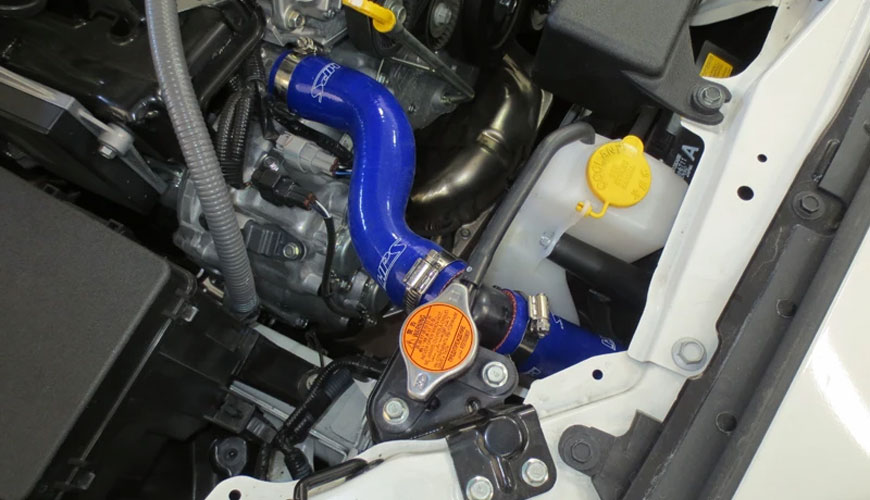

This test method provides a standard procedure for evaluating the electrochemical resistance of automotive coolant hose and materials. Electrochemical degradation has been determined to be the primary cause of EPDM coolant system hose failures. The test method consists of a procedure that induces a voltage into the test sample while being exposed to a water/coolant solution. Method #1, called the “Brabolizer” test, is a whole hose test. Method #2, called the "U" tube test, uses cured plate samples or plates prepared from tube material removed from the hose.

SAE J1684 Test Requirements
Commercial automotive coolant based on ethylene glycol containing an inorganic anti-corrosion protection system will be used. These coolants are typically green in appearance. Chemically resistant, electrically non-conductive thermoplastic end plugs, such as polyamide, PTFE, or polypropylene, suitable for isolating the applied voltage from the liquid test medium inside the tubing to the end of the tubing. The electrical contact surface for the applied voltage should be the inner circumference of the test tube. See Figures 1A and 1B for end plug assembly components. End plugs shown are for preferred 31,8mm ID tubing, but other sizes are available.
Our organization provides testing services for the electrochemical resistance of cooling system hoses within the scope of SAE J1684 standard, within the framework of national and international standards, with its trained and expert staff and advanced technological equipment, among numerous test, measurement, analysis and evaluation studies.
To get an appointment, to get more detailed information or to request an evaluation, you can ask us to fill in our form and reach you.